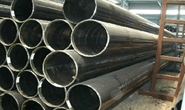Government/Policy

June 7, 2018
No Product Exclusions for Quota Countries
Written by Sandy Williams
A new wrinkle has been revealed for those manufacturers seeking exclusions for steel and aluminum products from Brazil, South Korea and Argentina.
The three countries, which have agreed to quotas in lieu of tariffs, are not eligible for any product exemptions. A spokesperson for the Commerce Department confirmed the restriction in an email to Inside U.S. Trade:
“The Presidential Proclamations do not provide authority to grant product exclusions for quota countries. The President retains authority to adjust quotas as needed.”
If a company requires a certain product from a quota-designated country for its manufacturing process and that product has already reached its export limit, it could stall production.
Quotas have already been filled in 40 of the 54 subcategories for steel imports from Argentina and in 18 of the 54 subcategories for Brazil.
Although many analysts agree that allowing exemptions would defeat the quota’s intent, one former USTR official told Inside U.S. Trade that quotas are worse than tariffs for sellers.
“They are more restrictive than the tariffs because they are finite,” the source said. “They are very distorting because the first person to get to the customs window gets in. So, if your friend that exports the same thing gets in behind you, they are out of luck. This results in hoarding behavior, meaning a flood of exporters bringing in products and putting it in warehouses.”
Australia is also exempt from the tariffs, but terms of the deal between Washington and Australian officials are not yet public.
So far, Commerce has not approved or disapproved any of the more than 11,000 steel product exclusion requests it has received.







